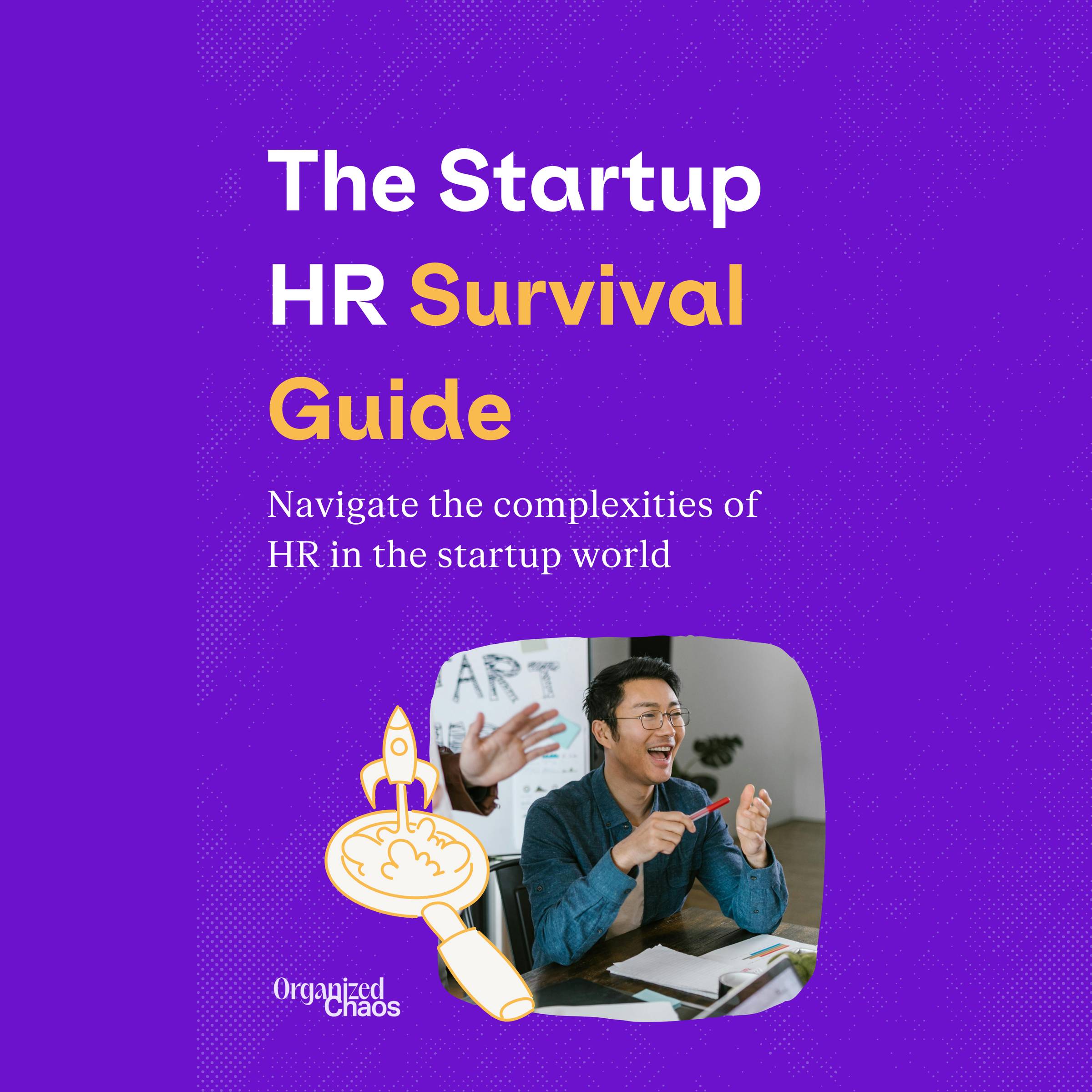|
Read on my website
In the latest episode of the Organized Chaos podcast, I had the pleasure of sitting down with Anirudh Narayan, the Co-Founder and Chief Growth Officer at Lyzr AI, a platform pushing boundaries in AI automation for business.
Anirudh (Ani) stands out as an industry thought leader, having been recognized by Thinkers360 for his contributions around Agentic AI. His journey from global marketing and sales to founding ventures, and now scaling Lyzr AI, gives him a unique view on the intersection of technology, human potential, and what it means to lead in a rapidly evolving business landscape.
In our conversation, we explored how AI is transforming business productivity, the shifting challenges and opportunities in HR, as well as Ani’s lessons learned as an entrepreneur. Whether you’re a founder, an HR professional, or simply curious about the future of work, this is an episode you won’t want to miss.
Check out the full interview on your favorite podcast app or YouTube.
Ani’s Entrepreneurial Journey
Ani’s journey offers valuable insights from a career that has taken him across the globe, including the United States, South America, Nigeria, and India.
Early on, he explored the world of artificial intelligence by launching Everything AI, a marketplace for AI tools, and educating founders about its potential. He later joined Lyzr AI.
Through these experiences, Ani has noticed that while building products has become more accessible, understanding customers and mastering distribution remain the most difficult (and essential) parts of building a successful business. He advises founders not to base their product vision solely on personal pain points, but instead to speak with potential customers every week and constantly refine their approach.
Key Takeaway: Success in tech isn’t just about building a great product; it’s about finding distribution, listening to users, and solving genuine, scalable problems.
AI and Escalating Productivity Expectations
We discussed a topic close to every startup leader’s heart: the relentless increase in productivity expectations driven by AI.
Ani pointed out how businesses are no longer satisfied with incremental growth. Where 15% growth was once impressive, now everyone’s asking why you aren’t growing by 100%.
AI promises a boost in productivity, but it’s also raising the bar on what’s considered “enough.” Even as automation handles more tasks, employees are expected to deliver 10x the output, fueling both opportunity and anxiety across industries.
Key Takeaway: AI is amplifying productivity, and with it, the pressure on teams and individuals to deliver more. The challenge is balancing these expectations with sustainable work practices.
The Role of AI in Business Scaling
We dug into how AI enables scaling and helps companies do more with leaner teams by automating workflows from marketing to HR.
Ani stressed that the biggest gains come when you blend human insights with AI’s automation. Every workflow needs a thoughtful ratio of tech to human touch, often 70/30 or 90/10.
In sales, content creation, and even recruiting, AI can cover repetitive tasks, but the real edge comes from humans driving strategy and creativity.
Key Takeaway: The future belongs to organizations that skillfully integrate AI and human expertise, automating routine work while empowering teams to focus on what only humans can do.
Challenges in HR with AI Implementation
Ani and I explored the nuanced impact of AI in HR: From resume filtering and onboarding to performance management and coaching.
The HR community is split! Some are ready to embrace it while others are deeply concerned about the loss of the “human touch.”
Ani’s take is pragmatic: Let AI handle the predictable, repetitive tasks, but never at the expense of the essential empathy and culture that only humans bring to a workplace. He also emphasized the need for awareness around data privacy and compliance when deploying AI in HR workflows.
Key Takeaway: AI can elevate HR by freeing up professionals for high-value, personal interactions, but only if adopted with a clear understanding of its limits and risks.
Tips for Using AI to Scale
Ani’s advice for founders: don’t get swept up in the hype. Focus on “vertical integration” and solving deep, specific problems for defined industries rather than trying to be all things to everyone.
The barriers to experimentation are lower than ever, but sustainable growth will come from truly understanding your users and their workflows. AI is a powerful tool, but it’s not a magic wand. The most successful founders leveraging AI will be those who approach it with curiosity, courage, and a commitment to delivering real value.
Key Takeaway: Start small, iterate quickly, and aim for mastery in a vertical market. Let AI be your amplifying force instead of your sole differentiator.
My Final Thoughts
Reflecting on my conversation with Ani, and incorporating the points I raised during our discussion, I recognize that his success stems from a clear vision, a pragmatic approach to sustainable growth, and a deep understanding that people remain at the heart of any company’s success (even amid the current AI frenzy).
Building on Ani’s insights and blending them with my own perspective, I’d like to add a few thoughts of my own:
1. Productivity and Pressure
It’s undeniable that AI has changed the game for workplace productivity. Yet as Ani and I discussed, the real story isn’t just about working faster; it’s about working differently. We need to guard against burnout and set smarter, not just harder, expectations. In the context of AI, it’s not about doing more, but about being purposeful with what we humans choose to do.
2. AI’s Role in Scaling
The most successful individuals and organizations will be those who clearly distinguish between what AI excels at and what remains uniquely human. Despite AI’s rapid progress in recent years, it thrives primarily when tackling structured, predictable tasks based on well-defined inputs. In contrast, humans remain unrivaled in their creativity and in solving ambiguous, unstructured problems. Ultimately, AI should be seen as a powerful tool, not a substitute for human heart, creativity, or leadership.
3. HR’s New Frontier
HR stands at a crossroads. While it’s easy to be either dazzled or intimidated by AI’s capabilities, the real skill lies in discerning where technology ends and human judgment begins. As both an HR professional and a tech enthusiast, I believe our future relies on amplifying (not erasing) what makes us distinctly human. It’s our responsibility to embrace this technological shift and meet it head-on.
AI will only continue to improve. If its current pace of advancement is any indication, AI will soon be able to take over much of the “necessary evil” work (such as compliance, policy administration, paperwork, etc.) freeing HR professionals to become genuine strategic business partners. We no longer have an excuse to stay insulated within the traditional HR bubble. The landscape is changing rapidly, and those unwilling to adapt will quickly be left behind.

Podcast Summaries
Not enough time to listen? No problem! Find focused summaries of each episode’s key learning points on my podcast page.
|
|

Startup HR Survival Guide
Navigate the complexities of HR in the startup world. I’ve distilled over 15 years of experience to help you get HR right the first time.
|
|
Whenever you’re ready, there are 4 ways I can help you:
- Talent Scalability Audit → Uncover what's blocking your hiring success and transform your talent operation. Get a detailed diagnostic of current gaps plus a proven roadmap to attract, evaluate, and retain top performers, with expert guidance on implementation.
- HR Tech Stack Enablement → Stop wasting money on failed HR software implementations. Get expert guidance to select, negotiate, implement, and roll out the ideal HR tech stack with guaranteed adoption and ROI.
- HR Scalability Audit → Turn HR into your growth accelerator. Receive actionable recommendations across talent, compliance, culture, and technology to build a world-class HR foundation that supports rapid scaling.
- The Startup HR Operating System → My flagship course for HR professionals where I share my complete playbook from 15+ years of experience working with startups. Get instant access to battle-tested playbooks, customizable templates, and expert masterclasses that have helped startups scale to 8-figures and beyond. Turn your HR function from a bottleneck into a growth accelerator.
|
|
|